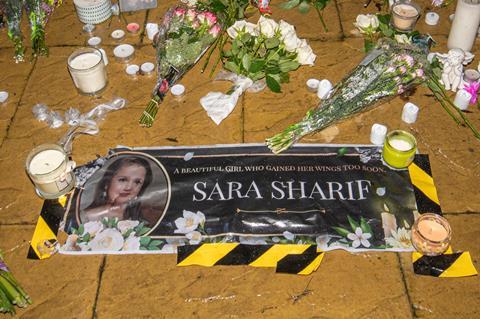A legal challenge to the restriction imposed on naming three judges involved in family court proceedings concerning murdered 10-year-old Sara Sharif has been allowed by the Court of Appeal.
The court today found that the High Court judge had no jurisdiction to make the anonymity order.
It emerged today that the 'historic judges', as they are referred to in the judgment, asked for time to prepare themselves if their names were to be revealed. In lead judgment. master of the rolls Sir Geoffrey Vos, with which Lady Justice King and Lord Justice Warby agreed, ordered the three to be given seven days before their names are published. This would ‘allow HMCTS to put measures in place to protect them from any potential harm’.
The order at the centre of the appeal was made by Mr Justice Williams and prevented the media reporting the names of the judges and other professionals who had been involved in past proceedings concerning Sara Sharif and two of her siblings.
The judgment acknowledged that Mr Justice Williams had not been asked for the names of the three circuit judges who had been involved in the past proceedings to be anonymised and had heard no submissions on the point. Mr Justice Williams said he would not name the judges without enquiries as to their health and response on potentially being named. Journalists Louise Tickle and Hannah Summers, as well as other media parties, appealed.
Vos said the appeals should be allowed ‘primarily on the ground that the judge did not, in the circumstances of this case, have jurisdiction to make the part of the order that anonymised the historic judges, but also on the grounds of procedural irregularity and unfairness’.
The open justice principle ‘is applicable as much in family proceedings as in any other proceedings’ he said. He noted that the CoA had ‘not been referred to any authority that minimises the importance of open justice’.

Read more
He added: ‘It should be made clear that, whilst judges are required to show resilience and fortitude, they are not required to tolerate bullying or abusive behaviour. As regards anonymity, however…the statutory restrictions on information in children’s proceedings are to protect the anonymity of the children and not the professionals.
‘In my judgment, judges are indeed in a special position. The authorities that concern anonymisation of social workers, experts and others involved or caught up in the justice system are not directly applicable to judges. Judges are appointed to fulfil a crucial public office. The independence and integrity of our judges is a cornerstone of our democracy.
‘It is the duty of judges to sit in public, save in circumstances that are closely delineated by statute,' he continued. 'In accepting office, all judges will or should be aware that that is the expectation, because public scrutiny of judges and the justice process is essential to the rule of law.’
The judgment added: ‘If, notwithstanding the lack of evidence to that effect, the judge was concerned about their being named, there were other, more appropriate, ways to protect them. He could have contacted HMCTS to warn them of the order that he was making and the risks that he foresaw. HMCTS would, in that event, as has happened now, have considered how the judges could be protected.’
This article is now closed for comment.



























7 Readers' comments